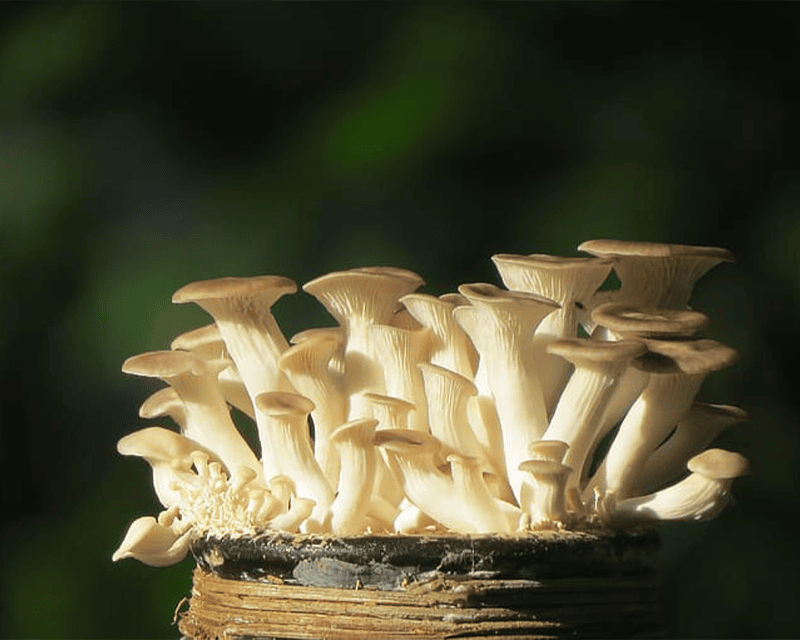History of Oyster Mushrooms:
The history of oyster mushrooms traces back centuries, with evidence suggesting their cultivation and consumption in various regions around the world. These mushrooms were revered for their unique flavor and nutritional benefits, making them a staple in many ancient cultures. From Asia to Europe, oyster mushrooms found their way into traditional dishes and medicinal practices, showcasing their versatility and importance to early societies.
As time progressed, oyster mushrooms continued to gain popularity and recognition for their rich taste and potential health benefits. Their cultivation methods evolved, leading to the development of new techniques to grow these mushrooms in controlled environments. The historical journey of oyster mushrooms highlights their enduring appeal and contribution to culinary and medicinal practices throughout history.
Origins of Oyster Mushrooms:
Oyster mushrooms, scientifically known as Pleurotus ostreatus, have a long history that dates back centuries. Believed to have originated in subtropical regions of Asia, these fungi are known for their delicate texture and mild flavor. Oyster mushrooms were initially foraged from wild forests before their cultivation began.
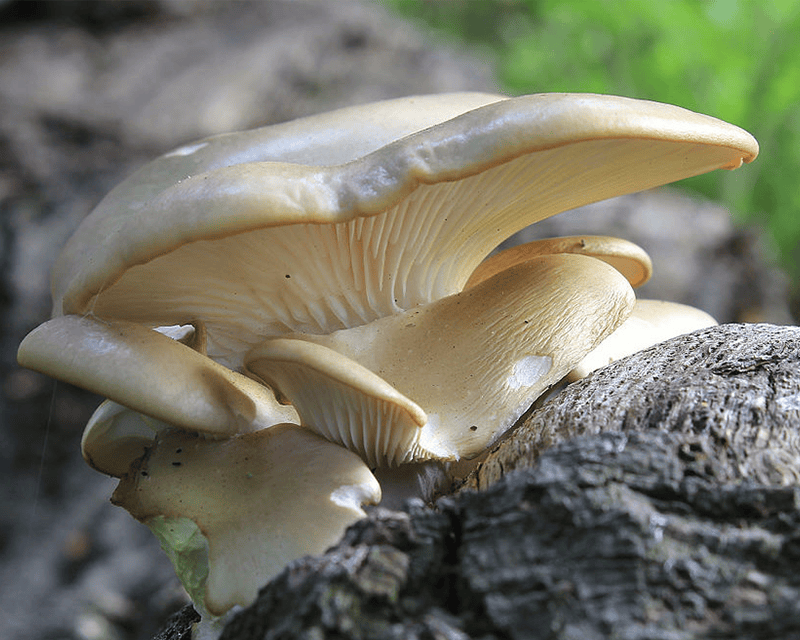
The exact origins of oyster mushrooms remain somewhat unclear due to their widespread presence across different regions. However, it is believed that they were first discovered in China several centuries ago, where they were revered not only for their culinary value but also for their potential medicinal properties. Over time, oyster mushrooms have spread to various parts of the world, becoming a popular ingredient in a wide range of dishes.
Cultivation of Oyster Mushrooms:
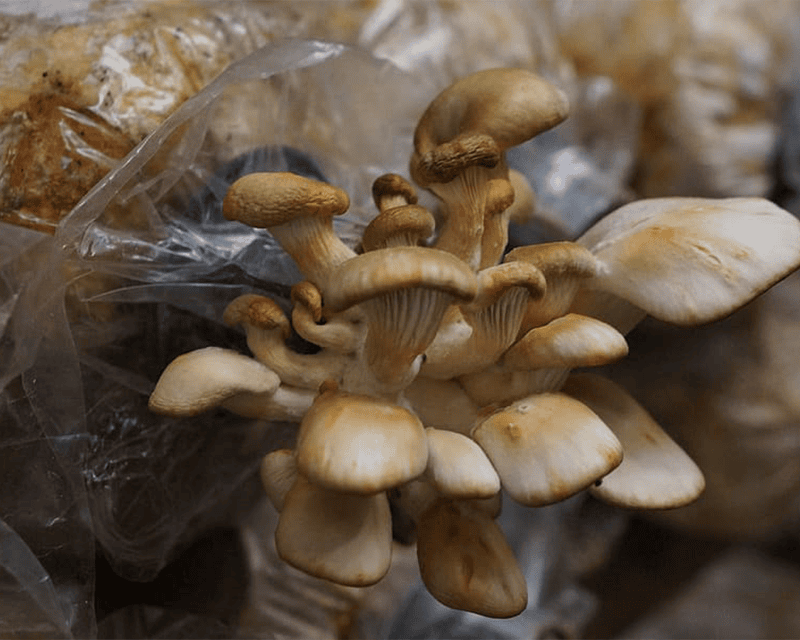
Oyster mushrooms are cultivated in a variety of ways, with some methods dating back centuries while others are more modern innovations. One common technique involves growing the mushrooms on a substrate such as straw, sawdust, or coffee grounds. These substrates provide the necessary nutrition for the mushrooms to flourish and are often recycled or repurposed materials.
Another popular method of cultivating oyster mushrooms is through the use of grow kits. These kits typically contain a pre-inoculated substrate that only requires the addition of moisture and proper environmental conditions to yield a harvest of mushrooms. Grow kits are favored by novice growers for their convenience and ease of use, making mushroom cultivation accessible to a wider audience.
Traditional Uses of Oyster Mushrooms:
- Oyster mushrooms have been utilized for their medicinal properties in traditional Chinese and Ayurvedic medicine.
- These mushrooms were often incorporated into remedies for boosting the immune system, improving digestion, and reducing inflammation. Additionally, oyster mushrooms were believed to have aphrodisiac qualities and were used to enhance libido and overall vitality.
- In various cultures, oyster mushrooms were also valued for their culinary versatility.
- They were often added to soups, stir-fries, and stews to impart a unique umami flavor. In some regions, oyster mushrooms were even sun-dried and used as a natural seasoning to enhance the taste of various dishes.
- Additionally, the high protein content of oyster mushrooms made them a popular meat substitute in vegetarian and vegan cooking.
Oyster Mushrooms in Ancient Cultures:
Oyster mushrooms have left a mark on various ancient cultures around the world, often revered for their unique taste and purported health benefits. In ancient China, oyster mushrooms were considered a culinary delicacy and were believed to possess medicinal properties. They were frequently used in soups, stir-fries, and herbal tonics, with some traditional Chinese texts dating back centuries mentioning the benefits of oyster mushrooms for overall well-being.
Similarly, in ancient Egyptian culture, oyster mushrooms were depicted in hieroglyphics as a symbol of abundance and fertility. They were commonly included in feasts and offerings to the gods, signifying prosperity and nourishment. The Egyptians also believed in the healing properties of oyster mushrooms and used them in various remedies and poultices to treat ailments. The presence of oyster mushrooms in the ancient cultures of China and Egypt highlights their enduring significance and versatility in culinary and medicinal practices.
Discovery of Oyster Mushrooms:
Oyster mushrooms have a fascinating history that dates back centuries. One of the earliest discoveries of these mushrooms was found in ancient Chinese texts, where they were praised for their delicious flavor and medicinal properties. As time passed, oyster mushrooms were also documented in other Asian cultures for their culinary and healing benefits.
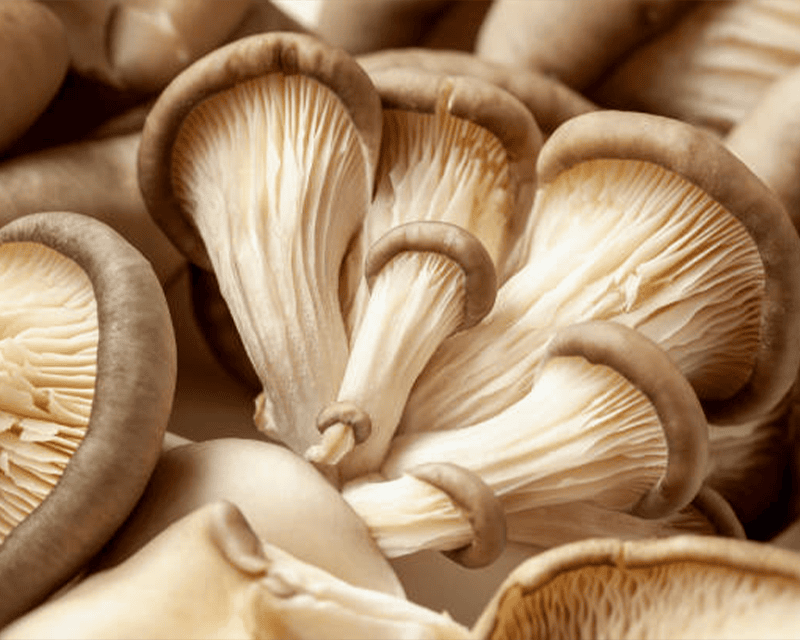
In the Western world, oyster mushrooms were initially identified and grown in Germany during the late 18th century. Their popularity quickly spread to neighboring European countries, where they became a sought-after culinary ingredient. The versatile nature of oyster mushrooms meant they could be used in various dishes, leading to their continued exploration and cultivation across different regions.
Spread of Oyster Mushrooms:
Oyster mushrooms have seen a significant increase in popularity in recent years, spreading to various regions around the world. This expansion can be attributed to their versatility in culinary applications and their relatively easy cultivation. As more people become aware of the nutritional benefits and delicious flavor of oyster mushrooms, they have become a staple ingredient in many cuisines globally.
The adaptability of oyster mushrooms to different climates and growing conditions has also contributed to their widespread cultivation. Whether grown indoors or outdoors, oyster mushrooms can thrive in a range of environments, making them accessible to a broader audience of farmers and home growers. With the increasing demand for sustainable and locally sourced produce, the spread of oyster mushrooms is expected to continue growing in the coming years.
Oyster Mushrooms in Modern Cuisine:
Oyster mushrooms have become a staple ingredient in modern cuisine due to their unique flavor profile and versatility in various dishes. Chefs around the world have embraced these mushrooms for their delicate texture and umami taste, adding depth and complexity to both vegetarian and meat-based recipes. From stir-fries and soups to pastas and risottos, oyster mushrooms are celebrated for their ability to enhance the overall taste of a dish.
In recent years, oyster mushrooms have gained popularity in plant-based diets as a sustainable alternative to meat. Their meaty texture makes them perfect for dishes like vegan burgers, tacos, and kebabs, offering a hearty and satisfying substitute for traditional proteins. Moreover, oyster mushrooms are valued not only for their culinary appeal but also for their nutritional benefits, as they are low in calories, fat-free, and a good source of vitamins and minerals. With the increasing focus on sustainable and healthy eating, oyster mushrooms are expected to continue playing a significant role in shaping the modern culinary landscape.

Health Benefits of Oyster Mushrooms:
- Oyster mushrooms have gained popularity not only for their unique taste but also for their impressive array of health benefits.
- These mushrooms are a rich source of essential nutrients such as vitamins, minerals, and antioxidants.
- They are low in calories and fat, making them a great addition to a well-balanced diet.
- Additionally, studies have shown that oyster mushrooms contain compounds that have potential anti-inflammatory and immune-boosting properties. Some research suggests that oyster mushrooms may help lower cholesterol levels and support heart health.
- With their versatility in various dishes and their promising health benefits, oyster mushrooms are a valuable ingredient to consider incorporating into your meals.
Future of Oyster Mushroom Cultivation:
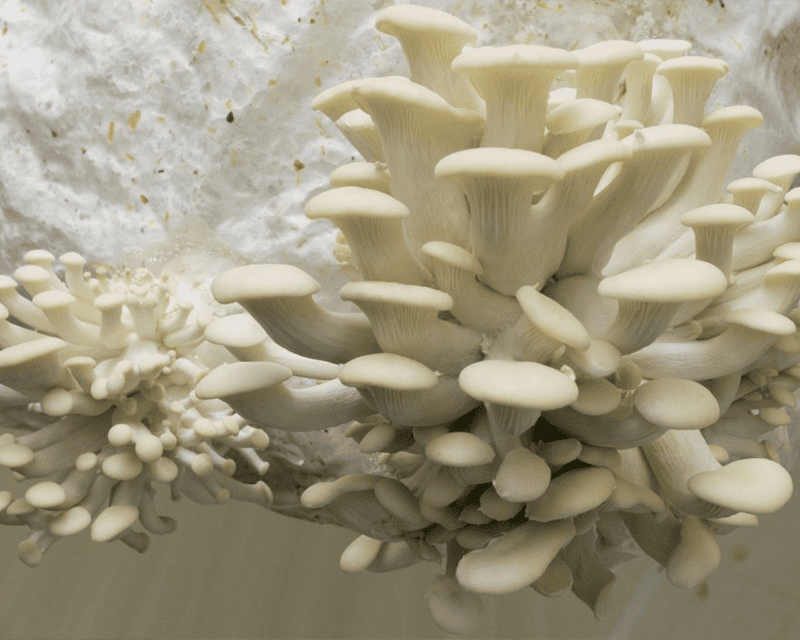
The future of oyster mushroom cultivation looks promising as more people are becoming aware of the health benefits and culinary versatility of these fungi. With an increasing demand for organic and sustainable food sources, oyster mushrooms are gaining popularity in the agricultural industry. Farmers are exploring innovative growing techniques to boost production and meet the growing market needs.
Advancements in technology and research are likely to further enhance oyster mushroom cultivation practices in the future. Scientists are working on developing new strains with improved yields and disease resistance. Additionally, efforts are being made to optimize growing conditions, reduce production costs, and increase the shelf life of oyster mushrooms. As consumers continue to seek out nutritious and environmentally friendly food options, the future of oyster mushroom cultivation is poised for continued growth and expansion.

